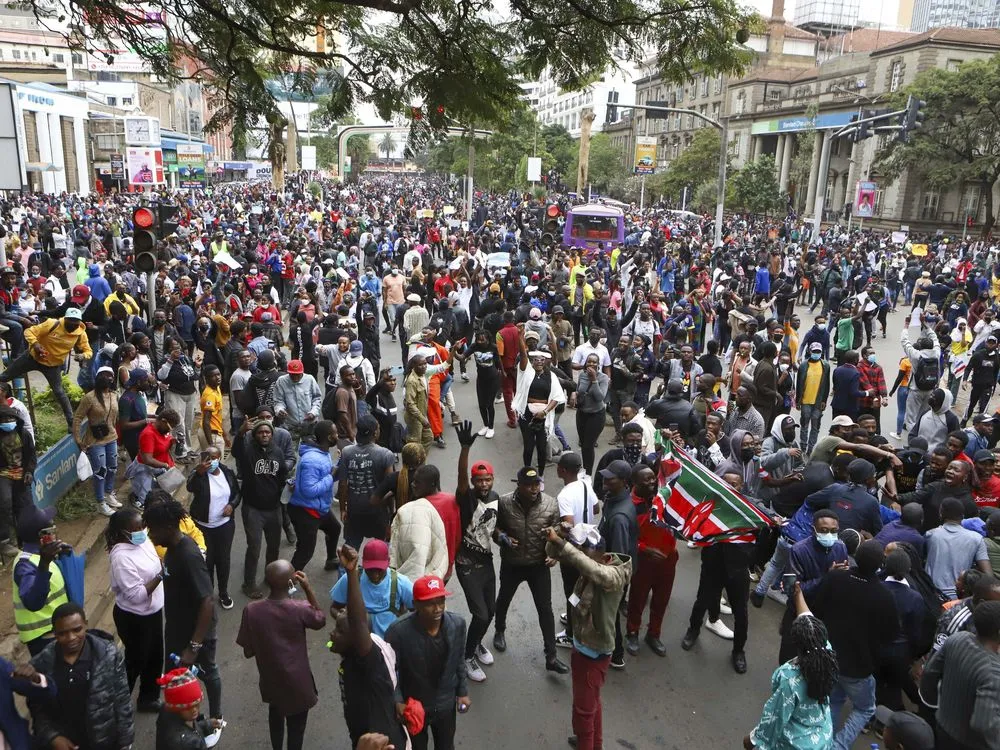Summary
- In Nairobi, simmering discontent erupted into chaos as President William Ruto’s promises collided with harsh economic realities. A controversial finance bill ignited widespread protests, escalating to clashes and the symbolic burning of parliament. Amidst tear gas and escalating tension, voices once hopeful turned to demands for Ruto’s resignation, marking a profound crisis of trust and accountability in Kenya’s leadership.
In the heart of Nairobi, the anger simmered like an unattended fire. The promise of change had swept President William Ruto into power, his rallying cry echoing through the streets: a champion of the hustlers, a voice for the struggling masses. But promises are fragile things, easily broken by the weight of reality.
The tipping point came with a finance bill that threatened to squeeze tighter the already strained pockets of ordinary Kenyans. In smoky corners of bustling markets, in the quiet desperation of homes where meals were becoming sparse, discontent brewed. The bill, they said, was a betrayal of the very hopes that had propelled Ruto to the presidency.
As murmurs turned to shouts and peaceful protests to clashes with the police, the streets became a battleground. Tear gas mingled with cries for justice, and the air crackled with tension. Parliament, a symbol of power and promise, found itself engulfed in flames sparked by fury. Lawmakers fled, their sanctuary overrun by the very people they were meant to represent.
Let Us Build Your Online Success!
We are the experts in creating visually stunning and functional websites. With reliable hosting and exceptional customer support, we bring your vision to life. Join hundreds of happy clients who trust us!
Get Started Now📞 Call/WhatsApp: +256 207 800 192
Bodies lay on the streets, victims of a struggle not just against a bill, but against broken promises and lost faith. The military rumbled through the city, a stark reminder of how quickly dissent could escalate into something darker, something that threatened to consume the fragile peace.
President Ruto, once hailed as the people’s champion, now stood at a crossroads. His decision on the bill would determine not just the nation’s economic future, but his own political survival. Religious leaders condemned the bill as unjust, echoing the cries of the people they comforted and guided.
In the midst of chaos, a youth-led movement emerged as the voice of a generation betrayed. They had warned of the consequences, pleaded for understanding, and now they stood at the precipice of history, demanding more than promises – demanding change.
And so, in the shadows of burning parliament and echoing through the streets, a nation’s anger flared. The call for President Ruto’s resignation echoed in the smoke-filled air, a demand for accountability amidst the wreckage of shattered dreams.

